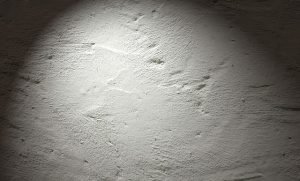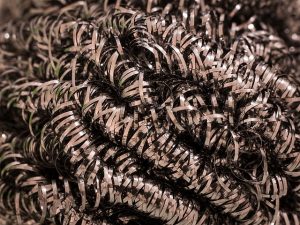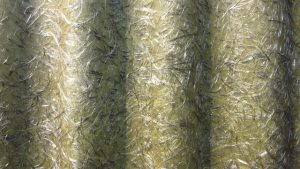Having mice in your home is concerning.
These (and other) rodents can damage your possessions AND spread diseases. You need to know what you are up against!
In this article, we look at what mice can chew through, so you can arm yourself with knowledge in your quest for a mouse-free house.
We answer the following questions; Can mice chew through:
It is worth noting that mice NEED to chew and gnaw things constantly. Mice have ever-growing teeth that need to be kept sharp and at a decent length.
If they stop gnawing, then their teeth will grow too big to be able to eat.
Forearmed is Forewarned – Hunt The Mice
There are so many places where mice can hide in your house, and hunting them down can be challenging.
You can use the information on this page to help you hunt down where the mice have been, and you can also secure weak points to limit further infestations.
What Can Mice Chew Through?
Drywall

Can mice chew through Drywall?
Yes
First, let us take a look at what Drywall is made of.
Drywall has 2 outer layers and a core. The outer layers are made of paper, and the core is made of Gypsum, which is usually mixed with fiber. Gypsum is a mineral composed of calcium sulfate dihydrate.
As mice can easily chew through paper, it is not difficult for them to get to the core. As the core is usually crumbly, it is easily dismantled by a mouse.
All you need to know is that mice can chew through Drywall.
Plastic Containers

Can mice chew through plastic containers?
Yes
Mice can chew through plastic containers. If the plastic is thick, it simply takes them longer to get through, but it is not impossible.
When hunting for food, mice use their extraordinary sense of smell to direct them where to go. If they can smell food, then they will go for it.
If you are storing food in a plastic container, then it is a target!
While we are on the subject of plastic, consider PVC and insulation on wires. Mice can chew through these and cause all kinds of damage to the wiring in your house. Fixing this can be extremely costly.
Steel Wool

Can mice chew through steel wool?
Yes – but not for long!
Although mice can chew through steel wool, they prefer to leave it alone. It is difficult for them to chew, and they quickly learn this.
Steel wool has many sharp points to it. As soon as a mouse realizes that it hurts to chew, it will stop trying and move on to another item.
A mouse can easily move a small bundle of steel wool, so it should not be used as an obstacle to stop mice from getting somewhere unless it is firmly stuck in place.
Steel wool can be used as a deterrent for mice if used correctly.
Concrete

Can mice chew through concrete?
Yes
If the concrete has not been cured correctly, a mouse can gnaw through it.
Curing is the process of ensuring there is adequate moisture within the concrete as it dries. The strength of concrete increases substantially over 3-7 days after laying. Concrete that has not been cured has around 50% of the strength of non-cured concrete.
Mice are capable of gnawing through non-cured concrete.
Wood

Can mice chew through wood?
Yes
Wood is easy pickings for a mouse. It goes without saying that the thicker the piece of wood, the more challenging it will be for a mouse.
Hardwoods are more of a challenge to mice but not impossible.
Wood shavings are perfect for mice to use for their nest too. Not only do mice chew wood to keep their teeth in check, but they also drag bits to their nest.
Expanding Foam
Can mice chew through expanding foam?
Yes
Expanding foam is an excellent way of sealing holes, but I do not think it will stop mice from getting through if they want to.
If you have tiny holes around your home, you must get these sealed for many reasons. Sealing holes will keep your house warmer (if you live in a cold climate), and it will also help limit the number of places a mouse can travel.
Ultimately, if mice want to get to the other side, they can chew through expanding foam.
Glass Fiber – Rock Wall

Can mice chew through Glass Fiber?
Yes
Glass fiber is extremely popular with mice and rats because it offers warmth, comfort, and protection from predators.
It is regularly used to form mice nests and is also used to host a whole family of mice. As you cannot hear mice or rats moving around on glass fiber, you will need to check regularly for other signs in and around your home.
Aluminum

Can mice chew through aluminum?
Yes
Many people swear by blocking holes with aluminum foil because there is a rumor that mice cannot chew through it. They are wrong.
I know that mice can chew through aluminum, and that trick has not worked for me in the past.
Mice cannot chew through thicker metal, though, and that is good news if you are looking for ways to keep mice out of food containers and personal items.
Metal and glass are the most common materials used to ensure possessions are safe from the teeth of a mouse!
Conclusion
Now you are armed with information on what mice can chew through; it will make your job of keeping your home rodent free much easier.
If you think you may have a mouse infestation, you must perform a full check around your home to see any evidence of mice chewing through items.
Leave nothing out!
Getting rid of a mouse infestation will be challenging, but it is not impossible. You may need to enlist the help of a professional, but you may also be willing to tackle it on your own.
Good luck!








